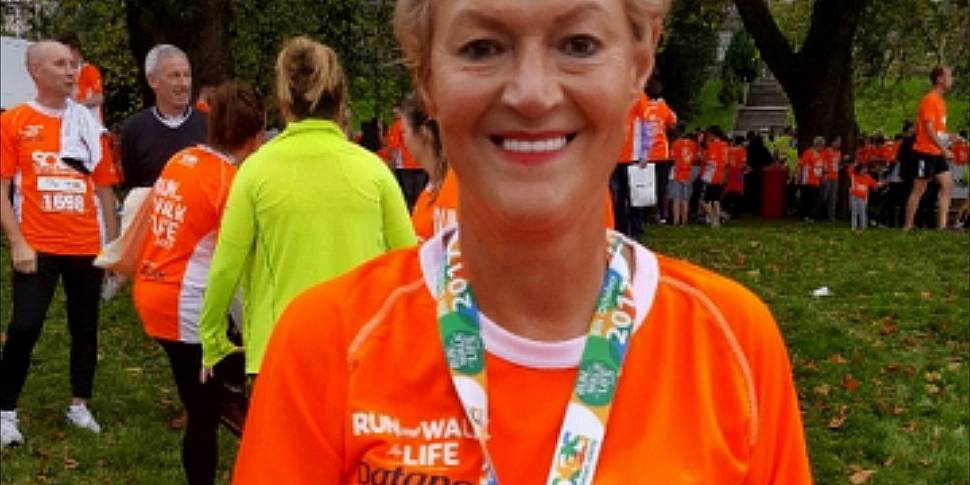A woman who was diagnosed with Stage Four cancer after struggling to a get an appointment due to coronavirus has said she feels, “very badly let down” by the system.
63-year-old Joan Durney was diagnosed earlier this year – four months after she began suffering pains in her back.
On Newstalk Breakfast this morning, she said she started getting the pains in October and was prescriber painkillers and advised to go to physio – which she continued with until the end of January.
Symptoms
“At that stage it was becoming more than just a pain in my spine and I was having difficulty walking; the pain was going down to my legs,” she said.
“I felt like my lungs were surrounded with a cage. I found it hard to breathe – I knew it wasn’t COVID, I had been for a couple of tests – and I started asking again for an appointment but I was told only consultations over the phone.”
She said she started getting “really, really getting worried” the following week.
“I could feel as if there was something eating at me. Like it was slowly moving down my hips into my bones and up into my neck,” she said.
Joan said things got the point where she was struggling to walk and she was referred to Barringtons in Limerick.
The waiting list at the hospital was “just too long” and Joan said she spent the next week "bombarding" different hospitals trying to get an appointment.
At this stage she was ‘struggling to breathe, unable to get out of the bed and not eating.’
Diagnosis
Eventually, she was accepted into the Bon Secours Hospital in Limerick for a full investigation.
“I went in there expecting a slipped disc,” she said. “I was having a lovely stay in the hospital and I was kind of saying, ‘this will be great now, they might do a little operation on my back.’
“The doctor came in the following morning – I know the symptoms – he came in the following morning with the nurse and he closed the door. He said, ‘Joan, it’s not good news.’
“‘You have Stage Four breast cancer,’ he said. “‘There is no cure.’”
"Very badly let down"
Joan - who is a cancer survivor, having beaten the disease nearly five years ago - said she feels very badly let down by the way she was treated by the health service this time around.
“There was no comparison,” she said. “The only aim they had this time was to keep me outside the door. I wasn’t important enough; I didn’t have COVID.
“I felt they let cancer get to me and they never stopped. They could have helped me. I am not saying it would have changed the diagnosis; I don’t know.
“At least now I am with palliative care – they are looking after my medication; they are trying to make sure I have as little pain as possible but I have gone through agony since November.
“You know I am only 63. I do feel very badly let down and I just feel the people that made the decision to do this for cancer care, maybe not me, maybe not in the next couple of months, but they are going to have a tsunami of cases.”
"Should have seen me sooner"
She said her only daughter has been “absolutely amazing” since the diagnosis.
“We are managing ourselves but there is a bitterness there that we just can’t get over,” she said.
“I don’t need that. I am trying to think positive but I just feel like, you should have seen me sooner. You should have looked at me. I am a previous cancer case.
"I didn’t pop in out of the blue. I had Stage Three cancer five years ago. We are out here, we are on our own and we are not well enough to be fighting.”
HSE
In a statement, the HSE said it cannot comment on individual cases but noted that “urgent, time critical care services, along with many routine services” have continued through the pandemic.
It said the second and third waves in November and January again impacted service delivery; however, “cancer services were again maintained for urgent referrals, time-critical surgery and other cancer treatments as far as possible, even at the peak of this third wave.”
It said it aims to address backlogs in cancer services throughout this year.
Earlier in the week, Professor Seamus O’Reilly, Consultant Medical Oncologist at Cork University Hospital, warned that the impact of the coronavirus on cancer services in Ireland will lead to higher death rates from cancer for a decade.
Today marks Daffodil Day and for the second year in a row, the Irish Cancer Society is unable to host its traditional on-street collections and fundraising events.
You can support cancer patients and their families this Daffodil Day, by visiting the Daffodil Day Online Shop or making a donation at cancer.ie.









